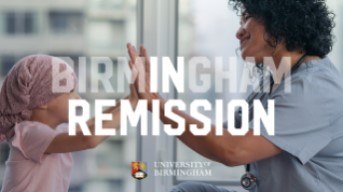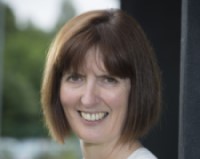Kinder treatments for children with cancer
While more than 80% of childhood cancer can be cured with the treatments we have today, these drugs are extremely toxic and the side effects are unacceptable. Birmingham is leading the National Children's Cancer Trials Team to find kinder and more effective treatments. Help them offer all children diagnosed with cancer the opportunity to join a clinical trial.
Professor Pam Kearns talks about improving cancer treatments for children

Childhood cancer is rare, and there have been few specific drugs developed for it. While the drugs we currently have are effective they are also highly toxic for children. The side effects can cause heart, learning and growth problems, lead to the risk of secondary cancers and can even stop patients having children of their own when they grow up. We need to find and test drugs to find kinder treatments for children.
Help give all children who get cancer the opportunity to take part in a clinical trial
With your help, we could expand our recently completed clinical trial BEACON into BEACON 2. The BEACON trial allowed the team, led by Professor Kearns, to test a variety of drugs for children neuroblastoma, a type of cancer which most affects children under five years old. BEACON 2 would allow researchers to expand on the learning from the first trial, and test a greater range of treatments to find the kindest and most effective available.
 Researcher Pam Kearns needs your support
Researcher Pam Kearns needs your support
'Our aim at Birmingham is to develop new and better treatments for childhood cancers. Treatments that are more effective, less toxic and have fewer side effects for children and young people.'
Make a donation
You could support childhood cancer research, through a gift starting at £5 a month. £100 could help a child with neuroblastoma get onto a crucial cancer trial or £250 could pay towards a clinical trials researcher, who would investigate which combination of drugs might work best for children.